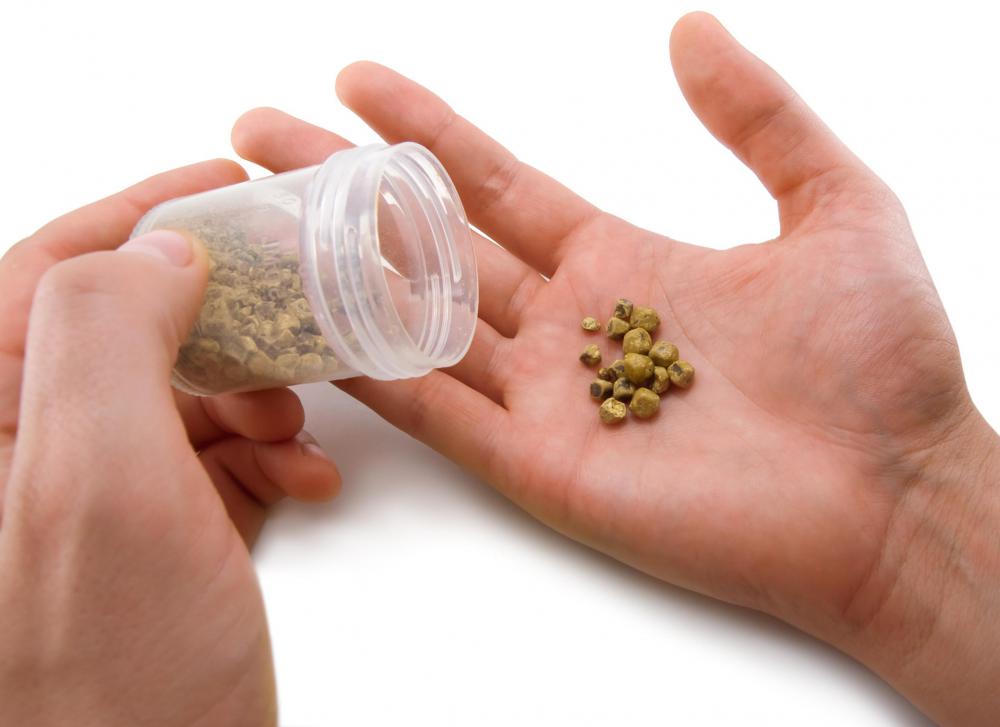At TheHealthBoard, we're committed to delivering accurate, trustworthy information. Our expert-authored content is rigorously fact-checked and sourced from credible authorities. Discover how we uphold the highest standards in providing you with reliable knowledge.
What Is Hypertonic Bladder?
When enuresis, or uncontrollable urination, occurs in adults, it is known as having an overactive or hypertonic bladder. Caused by any number of diseases or conditions that cause an improperly sized or operating bladder, this condition leads to regular urges to urinate that, if not satisfied, can cause incontinence — the inability to stifle urination. A diagnosis of hypertonic bladder could yield any number of treatment options, from a prescription for a bladder relaxant or pelvic exercises to catheterization or surgery.
Though it is possible that a tumor, excessive fluid intake, certain medications or even advanced age is causing a hypertonic bladder, this is typically a result of various diseases or conditions. Inflammation caused by infection or bladder stones are regular culprits. Other causes include an enlarged prostate, a condition called benign prostatic hypertrophy, and various neurological disorders, from Parkinson's disease to multiple sclerosis. It is widely believed that heredity is a factor.

Aside from an oddly recurrent urge to void the bladder, those with a hypertonic bladder will often experience regular incontinence as a result of it. The Mayo Clinic characterizes an excessive urge to urinate as happening eight or more times a day. Another sign of this disorder is called nocturia, when a patient wakes up a few times or more every night to urinate. Often, older adults assume the condition is untreatable and merely begin to wear adult diapers.

Doctors have a range of options available to determine why a person is suffering from this disorder. It may require a procedure known as a cystoscopy to view the operation of the bladder. Other tests might include radiology, urinalysis or a post-void residual volume test to gauge how much urine is voided and how much remains in the bladder after each urination.

Incontinence resulting from a hypertonic bladder is usually treatable though. Doctors have a range of non-invasive therapies at their disposal like training the bladder to hold more urine for longer periods. Doctors also will prescribe a medication known to relax the bladder or regulate its function. Called anticholinergis drugs, these go by names like darifenacin, oxybutynin or tolterodine. Another regular treatment includes what is known as pelvic-floor exercises to strengthen the muscles associated with urination.

Surgery is a last resort for those with this condition. One route is known as a bladder augmentation procedure, which involves creating extra bladder storage by altering a part of the bowels. Another procedure requires the implantation of a device that sends the correct array of electrical impulses to the bladder.
AS FEATURED ON:
AS FEATURED ON:




















Discussion Comments
@Mykol-- I think as we get older, it is common to not have quite as much control over your bladder. Just because you have to get up during the night to use the restroom doesn't necessarily mean your bladder is overactive.
For me, my first symptoms happened during the day, when I wondered if I was going to make it to the bathroom quick enough. When this started happening several times a day, I never wanted to be far from the bathroom.
It eventually got to the point where this was also waking me up at night, and that is when I finally decided to get it checked out. I had a cystoscopy done, which is not a fun test, but showed that I was not completely emptying by bladder.
There are several different ways they can treat this, and it never hurts to ask your doctor about it.
How does someone know if they have a hypertonic bladder or not?
I have to get up at least twice in the night to go to the bathroom. I am beginning to wonder if this is normal or if my bladder is overactive.
I have a hypertonic bladder and do pelvic exercises every day as a way to help with this. It would probably be a lot easier to take medication for this, but I am trying to avoid this.
I am hoping by strengthening these muscles, I can keep my bladder from being overactive. So far this has been working for me, but it does take discipline to keep at it every day. It is much better than the alternative though, and I remind myself every time I feel like skipping the exercises.
I had seen commercials on TV about having an overactive bladder, and never gave it much thought until I started to have problems. This is something that can be embarrassing to talk about, even with your doctor.
I thought it was just part of the aging process, but knew I didn't want to get to the point where I had to wear adult diapers. I felt like I was much too young for that.
He started me out on a prescription to help relax my bladder. I noticed a difference within just a few days. If someone else is struggling with this and embarrassed to do anything about it, I would encourage you to talk to your doctor. I wish I had said something much sooner than I did.
Post your comments